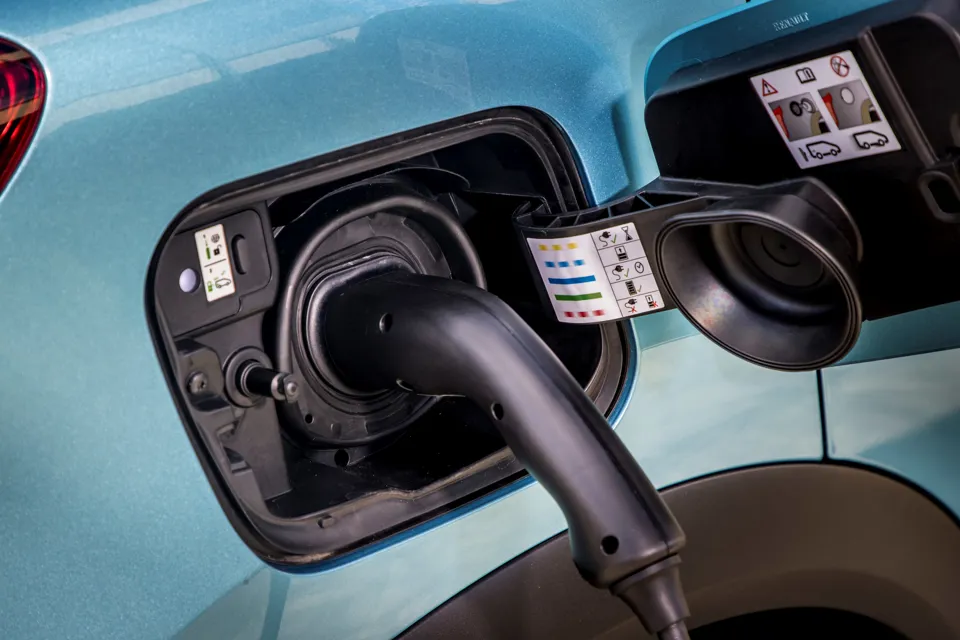The Government’s new Energy Bill Relief Scheme, which will provide a discount on wholesale gas and electricity prices for all non-domestic customers, has been welcomed by the fleet and leasing industries.
The package, unveiled by business secretary Jacob Rees-Mogg today (Wednesday, September 21), will apply to fixed contracts agreed on or after April 1, 2022, as well as to deemed, variable and flexible tariffs and contracts.
It will apply to energy usage from October 1, 2022, to March 31, 2023, running for an initial six-month period for all non-domestic energy users. The savings will be first seen in October bills, which are typically received in November.
Kate Jennings, director of policy at Logistics UK, said: “Rising energy prices are a great concern to businesses across the logistics industry, which is already operating on low profit margins.
“The financial support provided by the Government Energy Bill Relief Scheme will be much welcomed by businesses across Great Britain, with the scheme applying to energy usage from 1 October 2022.”
Figures from the latest edition of Logistics UK’s Manager’s Guide to Distribution Costs show that total vehicle operating costs have increased by 16.7% in the six months to July 1, 2022, as fuel, insurance premiums, business overheads and maintenance costs – such as tyres – have all increased.
“With operators also facing further costs as they look to decarbonise their fleets – and with many road operators transitioning to electric vehicles – Logistics UK is keen to work with government to explore what further support will be needed beyond the six-month period,” added Jennings.”
As with the Energy Price Guarantee for households, customers do not need to take action or apply to the scheme to access the support. Support (in the form of a p/kWh discount) will automatically be applied to bills.
To administer support, the government has set a Supported Wholesale Price – expected to be £211 per MWh for electricity and £75 per MWh for gas, less than half the wholesale prices anticipated this winter – which is a discounted price per unit of gas and electricity.
This is equivalent to the wholesale element of the Energy Price Guarantee for households. It includes the removal of green levies paid by non-domestic customers who receive support under the scheme.
The level of price reduction for each business will vary depending on their contract type and circumstances.
Non-domestic customers on existing fixed price contracts will be eligible for support as long as the contract was agreed on or after April 1, 2022.
Provided that the wholesale element of the price the customer is paying is above the Government Supported Price, their per unit energy costs will automatically be reduced by the relevant p/kWh for the duration of the Scheme.
Customers entering new fixed price contracts after October 1, will receive support on the same basis.
Those on default, deemed or variable tariffs will receive a per-unit discount on energy costs, up to a maximum of the difference between the Supported Price and the average expected wholesale price over the period of the Scheme.
The amount of this maximum discount is likely to be around £405/MWh for electricity and £115/MWh for gas, subject to wholesale market developments.
Non-domestic customers on default or variable tariffs will therefore pay reduced bills, but these will still change over time and may still be subject to price increases.
This is why the Government says it is working with suppliers to ensure all their customers in England, Scotland and Wales are given the opportunity to switch to a fixed contract/tariff for the duration of the scheme if they wish, underpinned by the government’s Energy Bill Relief Scheme support.
For businesses on flexible purchase contracts, typically some of the largest energy-using businesses, the level of reduction offered will be calculated by suppliers according to the specifics of that company’s contract and will also be subject to the maximum discount.
A parallel scheme, based on the same criteria and offering comparable support, but recognising the different market fundamentals, will be established in Northern Ireland.
If businesses are not connected to either the gas or electricity grid, equivalent support will also be provided for non-domestic consumers who use heating oil or alternative fuels instead of gas. Further detail on this will be announced shortly.
Mike Hawes, chief executive of auto trade body the Society of Motor Manufacturers and Traders (SMMT), said: “The new business secretary has given thousands of automotive companies vital breathing space, helping keep their operations viable this winter.
“This is a short-term fix, however, and to avoid a cliff-edge in six months’ time, it must be backed by a full package of measures that will sustain the sector.”
He added: “Manufacturers have consistently invested to drive down energy use, but it remains one of their biggest costs, threatening competitiveness and viability.
“Government must now seize this opportunity to deliver a long-term, affordable and secure supply of low carbon energy to ensure the industry is globally competitive and can deliver the jobs, economic growth and net zero gains the UK needs.”
The Government says it will publish a review into the operation of the scheme in three months to inform decisions on future support after March 2023.
The review will focus in particular on identifying the most vulnerable non-domestic customers and how the government will continue assisting them with energy costs.




















Login to comment
Comments
No comments have been made yet.